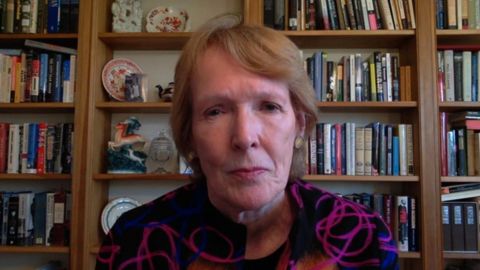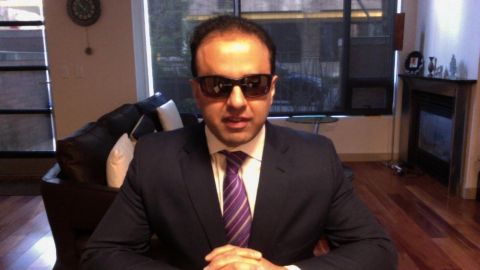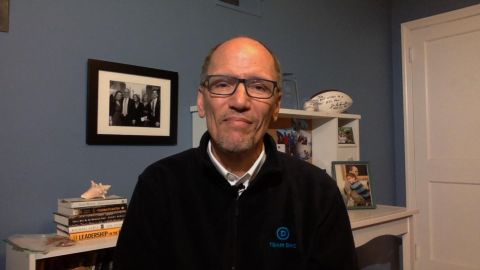Read Transcript EXPAND
JAMIE METZL, ADVISER, WORLD HEALTH ORGANIZATION: Well, it is heart breaking and it should be heart breaking for every American and every human. The W.H.O. is not perfect. It certainly has made mistakes, it made mistakes in the beginning of this crisis. But we need the W.H.O. now more than ever and we need it because the virus has shown us that we’re all interconnected, we are all one humanity. And if we need to coordinate a response, which we must, the W.H.O. is the essential body for doing that. Rather than undermining the W.H.O., we need to be working together to strengthen it.
CHRISTIANE AMANPOUR: What do you make of the president’s saying, well, this could be for 60 days or 90 days? It’s almost like, you know, he’s smacking an organization that he doesn’t like on the wrist, you know, like a naughty child or something. But how much damage resource-wise and funding-wise will even a halt for a period of two to three months take? What kind of a toll will it take?
METZL: Well, it depends on what kind of adaptations the organization may be able to make to keep essential processes going. I would imagine there could be credit facilities and the rest of the world, probably even China, will provide that kind of credit. So, the first issue is just funding essential activities now. But the second issue is equally important and that is we need to be not only delivering the message, we need to be building the foundations of a collaborative global response to this pandemic, and the W.H.O. has to be part of that and all sovereign entities need to be part of that and that’s why the W.H.O. and — can’t exclude the entities — countries like Taiwan in this process. This is one humanity.
AMANPOUR: Right.
METZL: We have to get over our restrictions and come together to solve this common problem.
AMANPOUR: OK. So, you just mentioned Taiwan and this drills down and this kind of exemplifies, illustrates this current issue. President Trump attaches the W.H.O. to China. He’s basically saying W.H.O. was the vehicle for China’s early lack of transparency and the W.H.O., for instance, never mentioned Taiwan. As we know, China, you know, doesn’t recognize Taiwan and the W.H.O. is part of the U.N. It’s really complicated. So, what is actually kind of the parameters within which the W.H.O. can work? Is it in hoc to China? Is it an independent body? Describe for people, what is the situation?
METZL: And that’s really a big part of the problem. And forgive me for a little bit of history, but the W.H.O. created in 1948 to play just the kind of role that it needs to play now. It’s been politicized not just by China but also by other states. And China has actively played politics with the W.H.O. and fought actively to keep Taiwan out.
About This Episode EXPAND
WHO adviser Jamie Metzl analyzes President Trump’s widely criticized decision to halt funding for the organization. Eminent historian Margaret MacMillan explains what history can teach us about the COVID-19 pandemic. DNC chair Tom Perez discusses how the pandemic will shape November’s election. Washington’s Lieutenant Governor Cyrus Habib explains how his state has been coping with the crisis.
LEARN MORE



